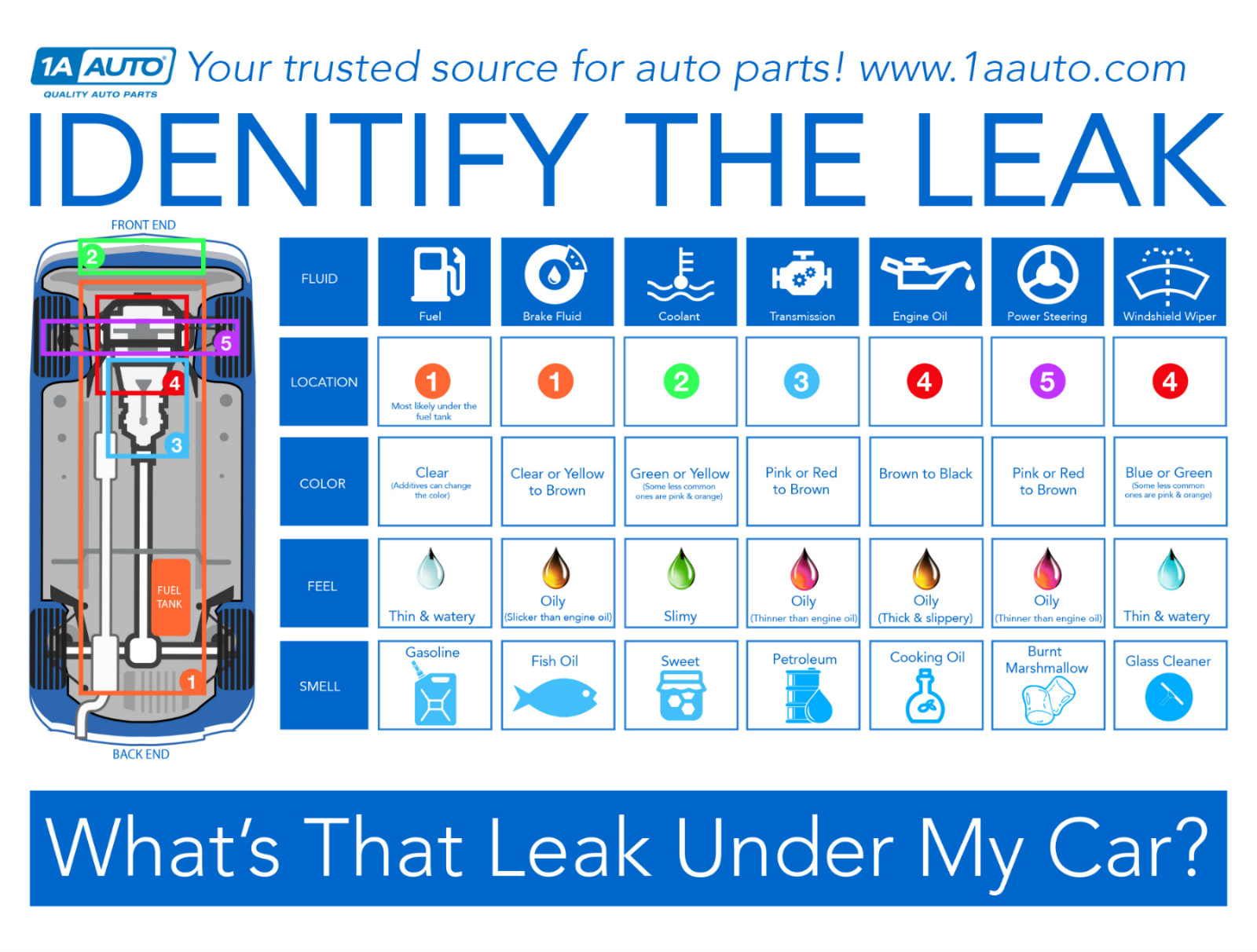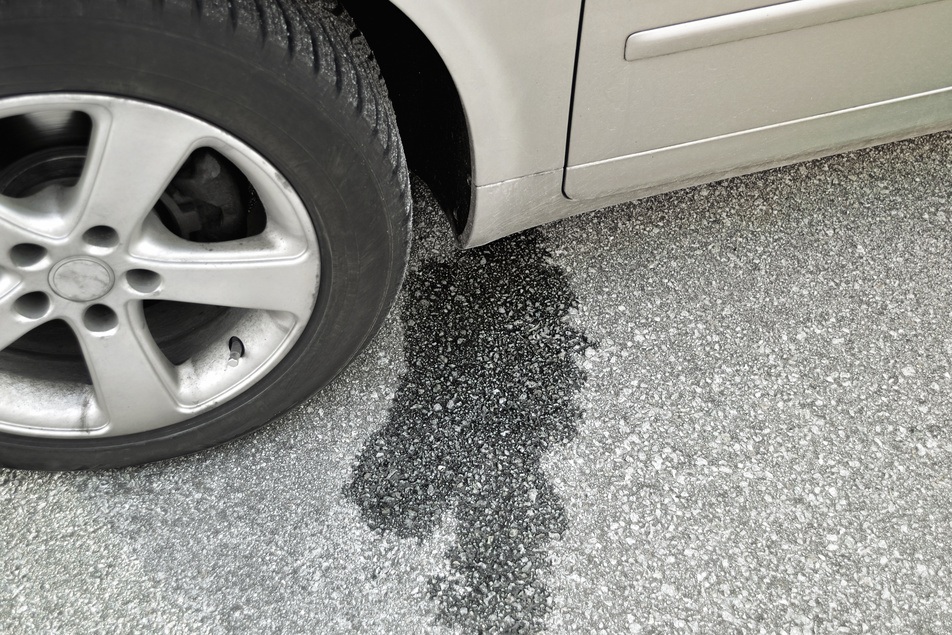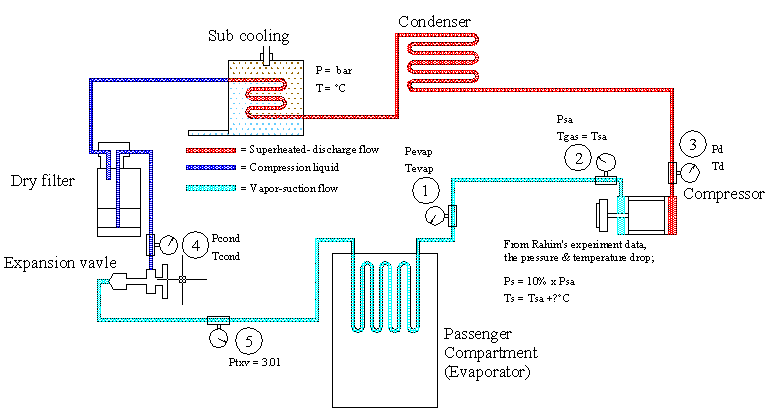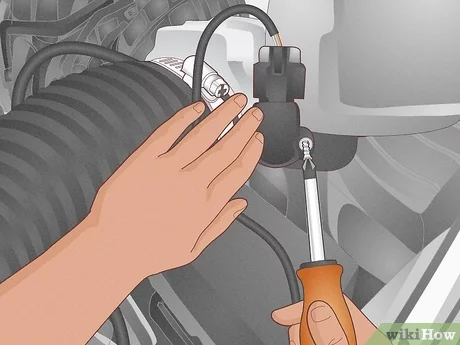Clear fluid leaking from a car is often water from the air conditioning system. It can also be windshield washer fluid.
Leaking fluid from a car can be concerning for many drivers. Identifying the type of fluid is crucial to understanding the potential issue. Clear fluid is usually less alarming than colored fluids like oil or coolant. Often, it’s just water condensation from the air conditioning system.
This is normal and typically not a cause for worry. Another possibility is windshield washer fluid, which is also usually clear or slightly tinted. It’s important to check and ensure there’s no ongoing issue. Regular maintenance can help identify and rectify such leaks. Always consult a professional mechanic if unsure about the source of any leak.
Identifying The Leak Source
Identifying the source of a clear fluid leak from your car can be tricky. Knowing what to look for helps you diagnose and address the problem quickly.
Color And Consistency Clues
The color and consistency of the fluid are crucial clues. Clear fluid is usually water or coolant. Water often comes from the air conditioning system. It is normal and not a concern.
Clear coolant might be harder to identify. Coolant usually has a slight color, like pink, green, or blue. If it appears clear, it might be diluted. Check the fluid in your reservoir to compare.
Location Matters
The location of the leak gives you more information. A puddle under the front passenger side likely points to the air conditioning system. This is common and typically not an issue.
If the leak is under the engine area, inspect for coolant. Coolant leaks can indicate a faulty radiator, hose, or water pump. Addressing these issues early prevents further damage.
Transmission fluid is another possibility. Clear transmission fluid is less common but possible. It usually leaks from the middle of the vehicle. Check your car’s transmission lines and seals for any signs.
Use these clues to identify the source of a clear fluid leak. Proper identification helps you take the next steps for repairs.

Credit: www.reddit.com
Common Types Of Car Fluids
Your car relies on various fluids to function properly. Each fluid has a specific role. Knowing these can help you identify a leak.
Engine Oil Vs. Transmission Fluid
Engine oil lubricates the engine’s moving parts. This reduces friction and prevents overheating. Engine oil is typically brown or black.
Transmission fluid lubricates the gears in the transmission system. It ensures smooth shifting of gears. Transmission fluid is usually red or pink.
| Fluid | Color | Function |
|---|---|---|
| Engine Oil | Brown/Black | Lubricates engine parts |
| Transmission Fluid | Red/Pink | Ensures smooth gear shifting |
Coolant Vs. Water
Coolant keeps the engine from overheating. It is often green, orange, or pink. Coolant has additives that protect the engine from rust.
Water can also be in the cooling system. But it is not as effective as coolant. Water can boil or freeze more easily than coolant.
| Fluid | Color | Function |
|---|---|---|
| Coolant | Green/Orange/Pink | Prevents engine overheating |
| Water | Clear | Less effective in cooling |
Initial Steps For Leak Investigation
Investigating a clear fluid leak from your car can seem daunting. Taking the right initial steps can simplify the process and ensure safety. This section will guide you through essential procedures.
Safety Precautions
Before starting, prioritize your safety. Follow these steps:
- Park your car on a level surface.
- Turn off the engine and let it cool down.
- Wear protective gloves and goggles.
- Ensure the area is well-ventilated.
Tools You Might Need
Gather these tools before you start the investigation:
| Tool | Purpose |
|---|---|
| Flashlight | To inspect dark areas |
| Clean Cloth | To wipe and identify the fluid |
| Container | To collect leaking fluid |
| Jack and Jack Stands | For lifting the car safely |
With these precautions and tools, you’re prepared to investigate. Remember, safety always comes first.

Credit: www.1aauto.com
Engine Area: Potential Culprits
Noticing clear fluid leaking from your car can be alarming. The engine area is often the source of such leaks. Identifying the exact cause is crucial for timely repairs. Let’s explore some potential culprits.
Checking For Coolant Leaks
Coolant is vital for regulating your engine’s temperature. Leaks can cause overheating and severe damage.
| Step | Action |
|---|---|
| 1 | Check the coolant reservoir for any cracks. |
| 2 | Inspect hoses and clamps for leaks. |
| 3 | Look for puddles under the engine area. |
Coolant leaks often appear as clear or slightly colored fluid. It may have a sweet smell. Addressing coolant leaks promptly prevents engine damage.
Assessing Washer Fluid And Power Steering Fluid
Washer fluid helps keep your windshield clean. A leak here is less critical but should still be fixed.
- Inspect the washer fluid reservoir for cracks.
- Check hoses connecting to the nozzles.
- Look for clear, soapy fluid under the engine bay.
Power steering fluid leaks are more serious. They can affect your ability to steer effectively.
- Check the power steering fluid reservoir.
- Inspect hoses and connections for leaks.
- Look for clear or slightly oily fluid.
Maintaining proper fluid levels is essential for safe vehicle operation.
Under The Vehicle: What To Look For
Finding clear fluid leaking from your car can be worrisome. Knowing what to look for under your vehicle helps identify the issue. Here, we will guide you on inspecting different types of fluids.
Inspecting Brake Fluid
Brake fluid leaks are a serious concern. Brake fluid usually appears clear to yellowish. It has a slick texture. To check for a brake fluid leak:
- Look for puddles under the car, near the wheels.
- Inspect the brake lines and master cylinder.
- Check the fluid level in the brake fluid reservoir.
Spotting Differential Or Gear Oil
Differential or gear oil might leak from the rear of the vehicle. This fluid is usually thicker and has a strong smell. Here’s how to spot it:
- Check for oil near the rear axle or differential housing.
- Look for stains or wet spots on the ground.
- Inspect the differential cover and seals for leaks.
| Fluid Type | Color | Location |
|---|---|---|
| Brake Fluid | Clear to Yellow | Near Wheels, Brake Lines |
| Differential Oil | Thick, Dark | Rear Axle, Differential |
Regular checks can help maintain your car’s health. Always address fluid leaks promptly.
Diy Leak Detection Techniques
Spotting clear fluid leaking from your car can be puzzling. DIY leak detection techniques can help identify the problem quickly. Here are some easy methods to detect leaks.
Using Dye Testers
Dye testers are effective for finding leaks. Here’s how to use them:
- Purchase a UV dye tester kit.
- Add the dye to your car’s fluid system.
- Run the car for a few minutes.
- Use a UV light to inspect for leaks.
The dye glows under UV light, making leak detection simple. This method helps find leaks in the coolant, oil, and other systems.
The Paper Test Method
The paper test method is straightforward and requires minimal tools:
- Place a large piece of paper or cardboard under the car.
- Leave it overnight.
- Check the paper for any fluid spots.
Each fluid type leaves distinct marks:
| Fluid Type | Color | Common Source |
|---|---|---|
| Coolant | Green, orange, or pink | Radiator |
| Oil | Brown or black | Engine |
| Transmission Fluid | Red or brown | Transmission |
| Water | Clear | Air Conditioner |
The paper test method helps identify the fluid type and potential leak source. Always address leaks quickly to avoid further damage.
When To Seek Professional Help
Clear fluid leaking from your car can be alarming. Not all leaks are serious, but some demand expert attention. Knowing when to seek professional help can save you time and money.
Signs Of A Serious Problem
Watch for these signs to know if the leak is serious:
- Fluid Puddles: Large puddles under your car.
- Strange Smells: Unusual odors from the fluid.
- Overheating: Engine runs hotter than normal.
- Low Fluid Levels: Frequent top-ups needed.
| Sign | Possible Issue |
|---|---|
| Large Puddles | Broken hose or seal |
| Strange Smells | Coolant leak |
| Overheating | Coolant system failure |
| Low Fluid Levels | Slow leak |
Benefits Of Expert Diagnosis
Professionals offer several benefits that DIY fixes can’t match:
- Accurate Identification: Experts pinpoint the exact issue.
- Proper Tools: They have specialized tools and equipment.
- Save Time: Professionals fix the problem faster.
- Safety: Ensures your car is safe to drive.
Seeking professional help for leaks is a wise choice. It prevents bigger problems down the line.
Preventative Measures And Maintenance
Clear fluid leaking from your car can be a sign of trouble. Regular maintenance and preventative measures are key. These steps help you avoid costly repairs and keep your car running smoothly.
Regular Fluid Checks
Performing regular fluid checks can save you from unexpected leaks. Check your car’s fluids every month. This includes brake fluid, coolant, and windshield washer fluid. Look for any changes in fluid levels or color.
- Check brake fluid.
- Inspect coolant levels.
- Monitor windshield washer fluid.
Use a clean cloth to wipe the dipsticks. This helps you get an accurate reading. If you find any leaks, address them immediately. Early detection prevents bigger problems.
Timely Replacements And Repairs
Timely replacements and repairs are crucial. Replace old or worn-out parts before they fail. This includes hoses, gaskets, and seals. These parts are prone to wear and tear.
Create a maintenance schedule for your car. Stick to it. Replace hoses and belts every two to three years. Inspect seals and gaskets during each oil change. A proactive approach keeps your car in top shape.
| Part | Replacement Interval |
|---|---|
| Hoses | Every 2-3 years |
| Belts | Every 2-3 years |
| Seals & Gaskets | Inspect during oil changes |
Addressing small issues promptly prevents bigger, costlier repairs. This proactive maintenance ensures your car stays leak-free and reliable.

Credit: www.customcompleteautomotive.com
Frequently Asked Questions
What Is The Clear Liquid Leaking From My Car?
The clear liquid leaking from your car is likely water. It usually comes from the air conditioning system. Check for any other potential sources to ensure it’s not a different fluid.
Is Clear Fluid Leaking Out Of Your Car Is Usually Coolant And Means You Should Check The Water Pump?
Clear fluid leaking from your car is likely coolant. Check the water pump for potential issues.
What Color Is Transmission Fluid When It Leaks?
Transmission fluid leaks are usually red or pink. Over time, it can turn dark brown.
What Is The Liquid Dripping From The Front Of My Car?
The liquid dripping from the front of your car could be coolant, oil, or water. Check for leaks and fluid levels.
What Causes Clear Fluid To Leak From A Car?
Clear fluid might be water condensation from the air conditioning system or windshield washer fluid.
Is Clear Fluid Leak From Car Serious?
Usually, it’s not serious. It often results from condensation or windshield washer fluid.
How To Identify Clear Fluid Leak?
Check for a light, water-like liquid under your car, often near the passenger side.
Where Does Clear Fluid Leak From?
It typically leaks from the air conditioning system or the windshield washer reservoir.
Conclusion
Identifying clear fluid leaking from your car is crucial for maintaining vehicle health. Regular checks can prevent major issues. Ensure you address any leaks promptly. Consult a mechanic if unsure about the leak’s source. Keeping your car in top condition ensures safety and longevity.
Stay proactive and enjoy a smoother driving experience.



